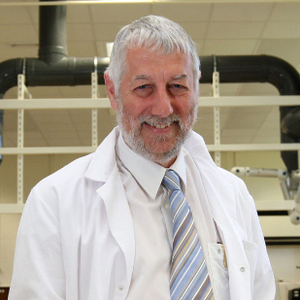Researchers in Wales synthesize methanol from crude glycerin




PHOTO: Cardiff Catalysis Institute
September 17, 2015
BY Ron Kotrba
Researchers from Cardiff Catalysis Institute in Wales have developed a way to increase the yield of biodiesel by using simple catalysis to convert glycerin from the transesterification process into methanol.
The researchers reacted glycerin with water, to provide hydrogen, with a magnesium oxide (MgO) catalyst. The reaction involved a simple one-step process and could be performed using mild conditions.
Since biodiesel is formed by reacting fats, oils and greases with methanol, the researchers estimate up to a 10 percent increase in biodiesel production when using methanol produced from crude glycerin. In addition, the newly gained methanol is derived from biomass rather than fossil fuels like a majority of the methanol used for biodiesel production.
Advertisement
The work, according to the institute, is in its early stages. In future studies, researchers will look to optimize catalyst design and increase its activity and selectivity.
“We’ve provided unprecedented chemistry that highlights the potential to manufacture biodiesel in a much more environmentally friendly, and potentially cheaper, way, by converting an undesired byproduct into a valuable chemical that can be reused in the process,” said Professor Graham Hutchings, CCI director and lead author of the study.
Advertisement
Co-author of the study Professor Stuart Taylor, deputy director of the CCI, said, “We set out to establish ways in which the waste product glycerol could be used to form other useful compounds, but we were surprised when we found that feeding glycerol and water over such a simple catalyst gave such valuable products and interesting chemistry. This research has the potential to transform the way in which waste is dealt with, and seriously improve the quality of life by reducing carbon emissions from fossil fuels and encourage efficient use of resources.”
Professor Matthew Rosseinsky, professor of inorganic chemistry at the University of Liverpool, who was not part of the study, said, “This paper shows how fundamental catalysis research can develop new mild processes to enhance the sustainability of biodiesel. As well as offering new opportunities for industry, it will stimulate the search for even better basic catalysts.”
The results of this work were published Sept. 14 in the journal Nature Chemistry.
Related Stories
The U.S. Department of Energy Bioenergy Technologies Office (BETO) announced up to $23 million in funding to support research and development (R&D) of domestic chemicals and fuels from biomass and waste resources.
The U.S. DOE has announced its intent to issue funding to support high-impact research and development (R&D) projects in two priority areas: sustainable propane and renewable chemicals and algal system cultivation and preprocessing.
Sens. Sherrod Brown, D-Ohio, and Pete Ricketts, R-Neb., in August introduced the Renewable Chemicals Act, a bill that aims to create a tax credit to support the production of biobased chemicals.
The Chemical Catalysis for Bioenergy Consortium, a consortium of the U.S. DOE’s Bioenergy Technologies Office, has launched an effort that aims to gather community input on the development of new biomass processing facilities.
USDA on March 8 celebrated the second annual National Biobased Products Day, a celebration to raise public awareness of biobased products, their benefits and their contributions to the U.S. economy and rural communities.
Upcoming Events










